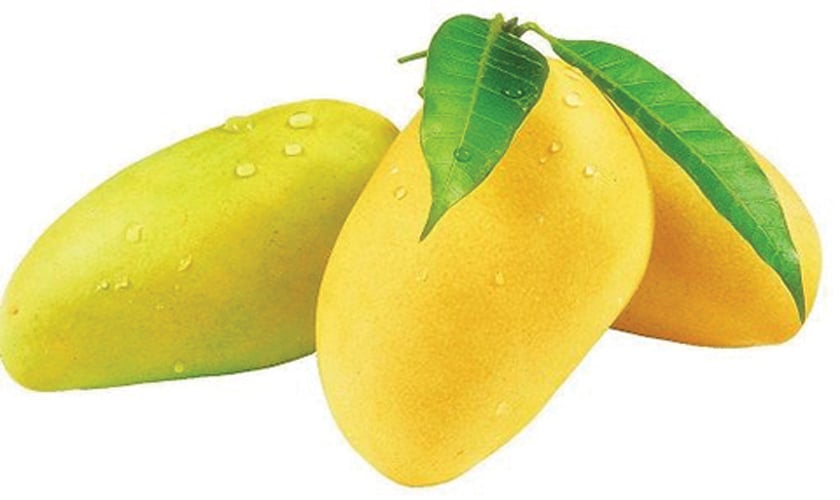AGRICULTURE
Mazhar Gara, a farmer hailing from the core mango belt of Multan district, is visibly a much satisfied grower, whose income has approximately doubled by employing good agriculture practices, thanks to free consultancy services provided by the private sector in low-income areas.
 Gara, who lives in Garawala, Head Muhammad Wala Road, Multan, owns a 23 acres mango orchard, with production of 226 tons. He said the output of his farm has increased significantly since he actively began following good farming practices. It also helped him in fetching far better prices for his produce. He said that about twofold increase in per acre price of mango farm has been witnessed in the last three years, following the start of the project.
Gara, who lives in Garawala, Head Muhammad Wala Road, Multan, owns a 23 acres mango orchard, with production of 226 tons. He said the output of his farm has increased significantly since he actively began following good farming practices. It also helped him in fetching far better prices for his produce. He said that about twofold increase in per acre price of mango farm has been witnessed in the last three years, following the start of the project.
Pulp factories are being established in the area that can provide additional income to mango growers, he said, adding, the project being run by Nestle contributed a lot in this direction. Being a perishable item, mango is hardly available for about three-to-four-month in the market. However, it can be preserved for the remaining part of the year by processing it through value-addition.
B-grade fruits are now increasingly being sold to pulp units, at much better price, providing additional income to the farmers. This development is also gradually adding and reinforcing another stage in the value chain of the fruit
Major contribution in this regard has been Nestlé Pakistan’s initiative of Chaunsa Project for mango farmers. It was launched as part of Creating Shared Value (CSV) platform to improve fruit quality and yield with the end goal of making them a part of the value chain.
Nestle Pakistan’s obsession with mangoes of the country is pretty understandable. The best-selling fruit juice of Nestle is derived from chaunsa variety of mango. Mango juice is the most-sought after product of Nestle Pakistan as it comprises of almost half of all sales of fruit juices in the country.
About 10,000 tons of mango pulp has been bought by Nestle for manufacturing fruit-juice for the local market this year. Out of it, over 80 percent is from the chaunsa variety. Nestle is also working on introducing other varieties of mango under its fruit-juice product-line. All of mango being used by Nestle for making juice is originated from Pakistan.
Another farmer, Mirza Mohsin Baig of Nawabpur, District Multan, owning 32 acres orchard with about 200 tons of production, said growers were adopting new technology being introduced by Nestle to increase their output. According to an estimate, he added, 30-40 percent people are showing interest in modern farming practices for increasing yield of their mango orchards. Fertilizers and pesticides are being used judiciously, while new picking techniques are also helping farmers in reducing post-harvest losses.
“I myself adopted new technologies for bolstering my production. It guided me a lot both in increasing quantity as well as enhancing quality of the fruit. The production has witnessed an increase of 50-60 per cent in the last 2-3 years, improving the livelihood of farmers to a great extent,” he said.
Qaiser Mahmood, the Project Manager said that despite producing good quality fruit in large quantities, share of export was low. He added that certain protocols were to be followed for meeting global trade standards, as far as exports of mangoes were concerned. In this regard, he observed, government should play its role to help farmers across the country. He also stressed the need to set up mango pulp units with government support to strengthen the mango value chain.
Mahmood said that a new trend of storing mangoes in cold storages was being practiced for increasing its shelf life to some extent. After fully treating mangoes at controlled temperature before storing it, the shelf life can be increased to three months. For export purposes, vexing of mangoes is also being done to enhance its shelf life, he added.
The long-term vision for the ‘Chaunsa Project’ is to take Nestlé’s principle of Creating Shared Value (CSV) and support small farmers, just as the company did with its dairy farmers years ago – 150,000 of whom now provide their milk directly to Nestlé as part of their value chain, said Ali Ashar, CSV Manager.
Similarly, he added, through responsible sourcing of mango pulp and development of linkages with Nestlé’s value chain, small farmers would have better access to markets where they could sell their mangoes at competitive prices. By doing so, he maintained, the company could continue to improve livelihoods of rural communities across the country, contributing in rural development. To a question, he said, “After the success with farmers we worked with, the project is being expanded to cover 25 farms in 2016.”
 Eight large farms are being given consultancy, free of cost, for enhancing production, he said. “We are gradually introducing good agriculture practices, and farmers are adopting technologies for increasing their farm yield, slow and steady.”
Eight large farms are being given consultancy, free of cost, for enhancing production, he said. “We are gradually introducing good agriculture practices, and farmers are adopting technologies for increasing their farm yield, slow and steady.”
Nestle has not linked the provision of these services to farmers with buying of the mangoes from them. “We have given them option to sell their produce.” According to an estimate, the income of farmers could increase by one-third if window of pulping is opened on consistence basis.
As per the proposed mechanism, Nestle Pakistan will buy pulp from manufacturer but ensure proper mechanism of payments to mango farmers.
Aatekah Mir Khan, Corporate Media Relations Manager, told journalists about the significance of the project saying, the ‘Chaunsa Project’ is an example of how Nestlé creates shared value in the communities it works in. It is a pilot initiative, which supports mango farmers in southern Punjab. In the initial phase of the endeavour, small to medium-level farms were chosen in south Punjab that benefitted from training on best farm practices to increase yield and improve quality of chaunsa mangoes.
Nestlé has trained and built the capacity in a range of areas, including pre- and post-harvest horticulture, plant propagation and varietal assessment. Small farmers are now able to take advantage of new opportunities in the mango farming sector, including canning, pulping and exporting, she added.
According to an estimate, production of mango, which is dubbed as king of fruits, is expected at about 1.7 million tons this year, while only about five percent of the total production is exported annually. Pakistan is ranked 4th in global mango production but found only sixth position in the export ranking. Mango is the second biggest fruit crop of the country, and a whole culture of rural Pakistan revolves around it.
The writer is a staff member